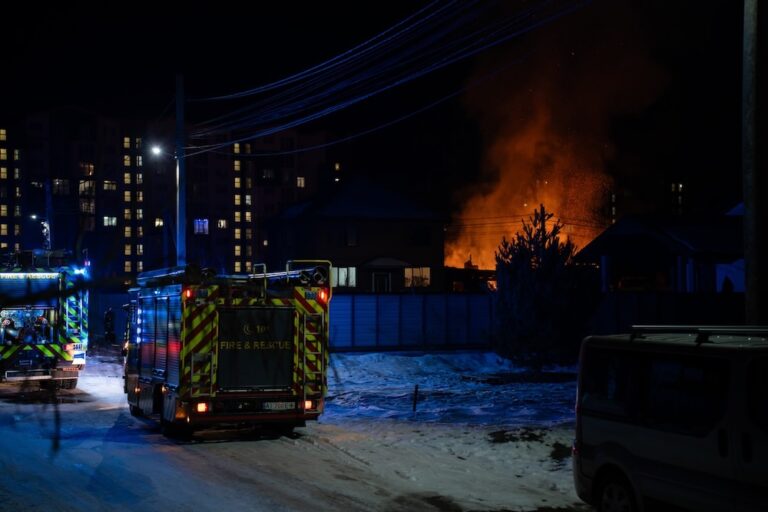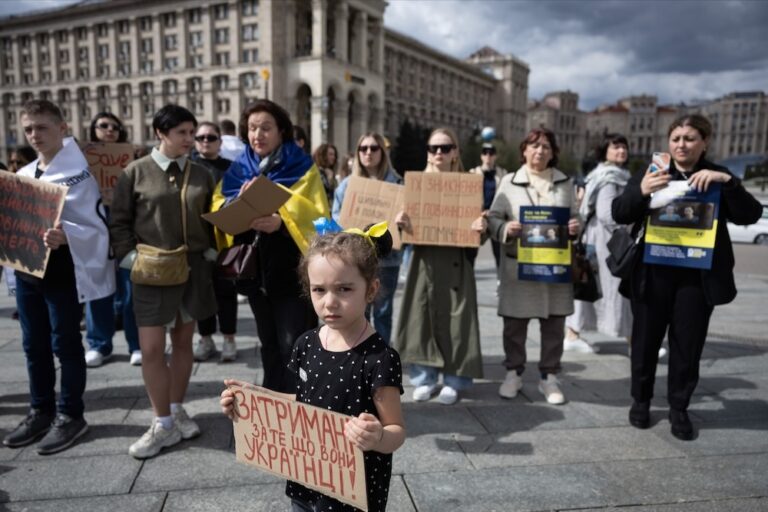ARTICLE 19 believes that the proposed law infringes on the right to seek historical truth and fails to meet international standards for free expression.
(ARTICLE 19/IFEX) – 1 October 2009 – ARTICLE 19 urges the Government of Russia not to adopt a federal law “On Combating the Rehabilitation of Nazism, Nazi Criminals or their Collaborators in the Newly Independent States on the Territory of the Former Union of Soviet Socialist Republics”. The draft law is part of a drive by the Government to impose an official view of the country’s controversial history. ARTICLE 19 believes that this law infringes on the right to seek historical truth and fails to meet international standards for free expression.
The law is proposed alongside other initiatives, such as the establishment of a Presidential Commission on “countering efforts to falsify history contrary to the interest of the Russian Federation”.
ARTICLE 19 has launched a legal analysis which finds that the scope of the proposed law is discriminatory and raises questions about respect for the sovereignty of foreign countries. The proposed law restricts freedom of expression by envisaging sanctions against individuals, organisations, companies and the media for denying “official” history. This may impede open and free debate about historical personalities and events. Also, the language contained in both the proposed law and the terms establishing the scope of the presidential commission are vague.
ARTICLE 19 recently convened a round-table meeting in London to discuss the proposed law, along with the inaccessibility of Soviet archives, illegal confiscation of information on victims of Stalinist repressions, and overall state control of historical information and debates.
At this event, the historian and writer Orlando Figes asked participants to view the proposed law within the broader context of Russian state control and censorship.
“This law and other initiatives of the Russian Government are all part of growing state censorship, not only in the area of publication of history books, but also of education of history,” commented Figes. “There has been a dramatic shift in the role of the state in education under the Putin regime . . . which started taking an increasingly interventionist role in education. This included withdrawing of textbooks on history, for example, because they were critical of Putin, or because they invited school-children to make a comparison of what happened under the Nazis to the situation in the Soviet Union under Stalin in the 1930s and 1940s.
“In 2007, a conference of school teachers was called by Putin, where they were ‘encouraged’ to present a more positive view of Soviet history. The Ministry of Education commissioned a history book that had to be used in the schools; as it turned out Putin himself had given a directive to the writers of this book on what they have to say about all the Soviet leaders starting from 1945.”
Figes also referred to other repressive acts by the Russian Government, such as a November 2008 police raid on the organisation Memorial, illegally confiscating their historical archives.
“What was taken is perhaps the ultimate proof of what the raid was about: a seizure that was going to effectively handicap the activity of the organisation. Hard-disks that contained databases of victims of repressions in the Leningrad district, transcripts of interviews, information on burial sites of victims of repressions, and, perhaps most annoyingly of all, a new venture by the Leningrad branch of Memorial, a virtual Gulag museum.”
ARTICLE 19 believes that freedom of expression is not possible without access to information and this includes historical archives, as well as open and unrestricted debates about Russia’s history.
ARTICLE 19 calls on the Russian government to:
– Refrain from adopting the proposed law “On Combating the Rehabilitation of Nazism, Nazi Criminals or their Collaborators in the Newly Independent States on the Territory of the Former Union of Soviet Socialist Republics”;
– Refrain from imposing state-sanctioned versions of historical events and personalities and ensure the free flow of public debate about Soviet history, providing access to historical archives; and
– Ensure that Russia’s laws and practices are in line with the country’s international obligations and in particular with Article 19 of the International Covenant on Civil and Political Rights and Article 10 of the European Convention on Human Rights.


